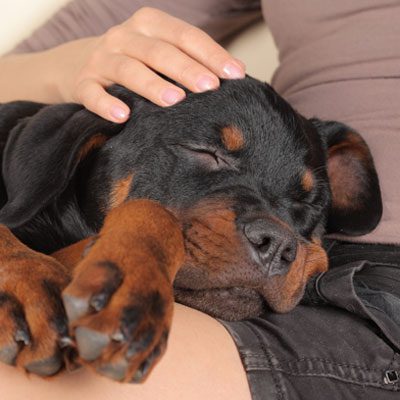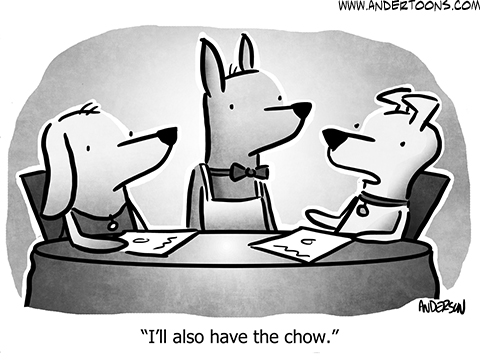Did you know that dental problems are one of the most common health issues we see in our canine patients? These issues can be very painful, and, if left unchecked, can become quite dangerous. Just like people, Fido needs good oral care. It’s also important to keep an eye out for warning signs. Here, a Roanoke, VA vet discusses signs of doggy dental issues.
Bad Breath
Fido has many charms, but minty-fresh breath is not one of them. That said, your dog shouldn’t wilt plants with his breath. If your puppy’s affectionate doggy smooches leave you gagging, dental issues may be to blame.
Swelling
Visible swelling is a definite red flag. This should be treated as a medical emergency, as oral infections can spread quickly. In some cases, they can even be fatal.
Tartar Buildup
Does your furry best friend have unsightly yellow or brown buildup on his teeth? If so, he could probably use a good cleaning. Tartar buildup often goes hand-in-hand with gum disease, which affects a whopping 80 percent of adult dogs. This is actually a very serious problem. The bacteria from gum disease can spread to Fido’s vital organs, and can contribute to major issues, like heart disease.
Bleeding Gums
Bloody gums are another warning sign. You may also see traces of blood on your pup’s dishes or toys.
Grumpiness
Toothaches generally don’t do much for anyone’s moods. Dogs are no exception here. If your pooch seems uncharacteristically cranky, he may have dental problems.
Shyness
If Fido shies away when you try to touch his face, there could be a problem with his mouth or teeth.
Reduced Interest In Play
Just like people, dogs often don’t feel very playful when they are sick or injured. If Fido has suddenly lost interest in his toys, he may be having trouble with his teeth.
Changes In Appetite
Dental problems can make it hard for Fido to chew. He may take longer eating, dribble food out of his mouth, chew on one side of his mouth, and/or start preferring softer foods.
Tips
Most of the symptoms listed above can actually be indicative of several different medical issues, including some very serious ones. Don’t take chances! Call your vet immediately if you notice any of these red flags!
Please reach out to us, your Roanoke, VA vet clinic, anytime. We are here to help!







